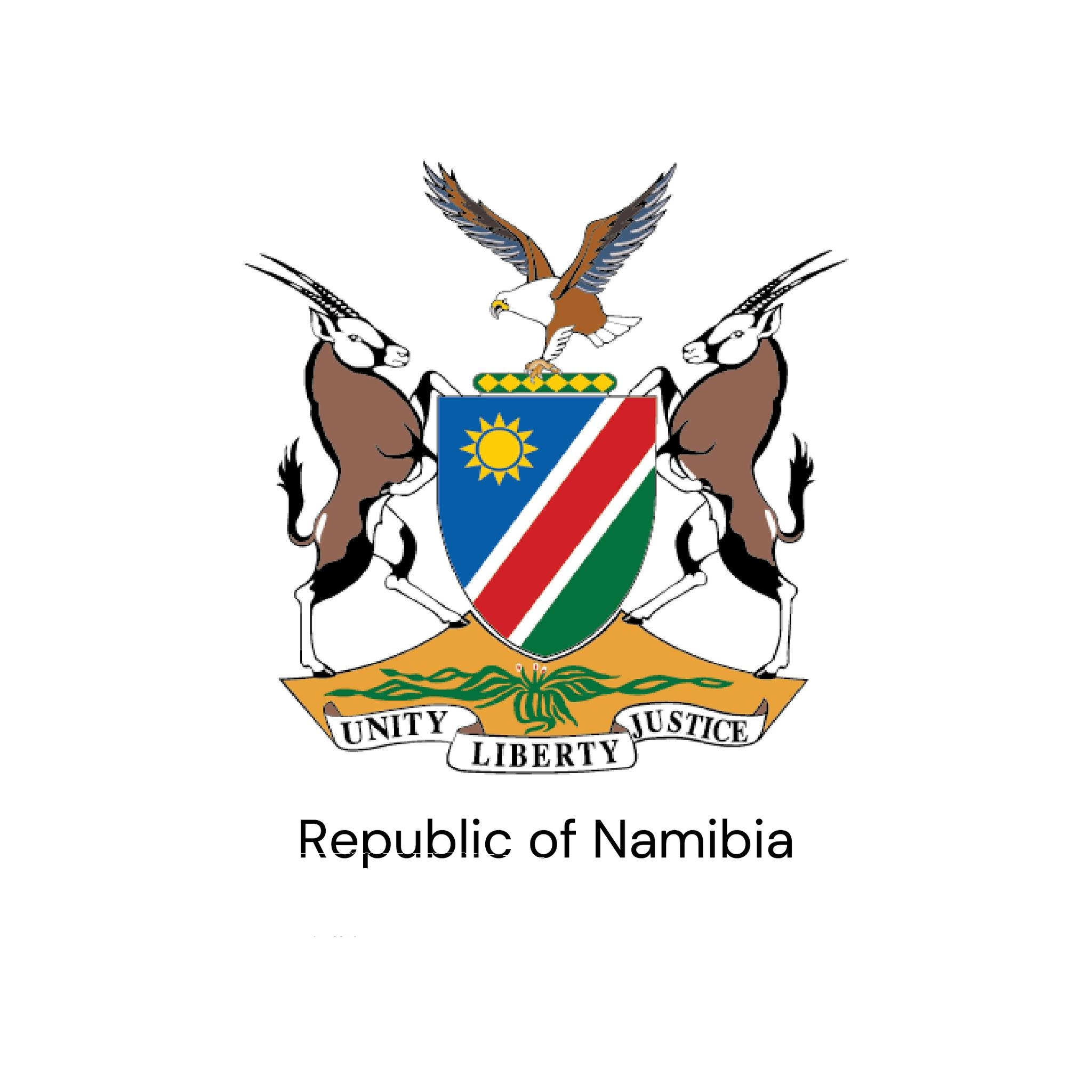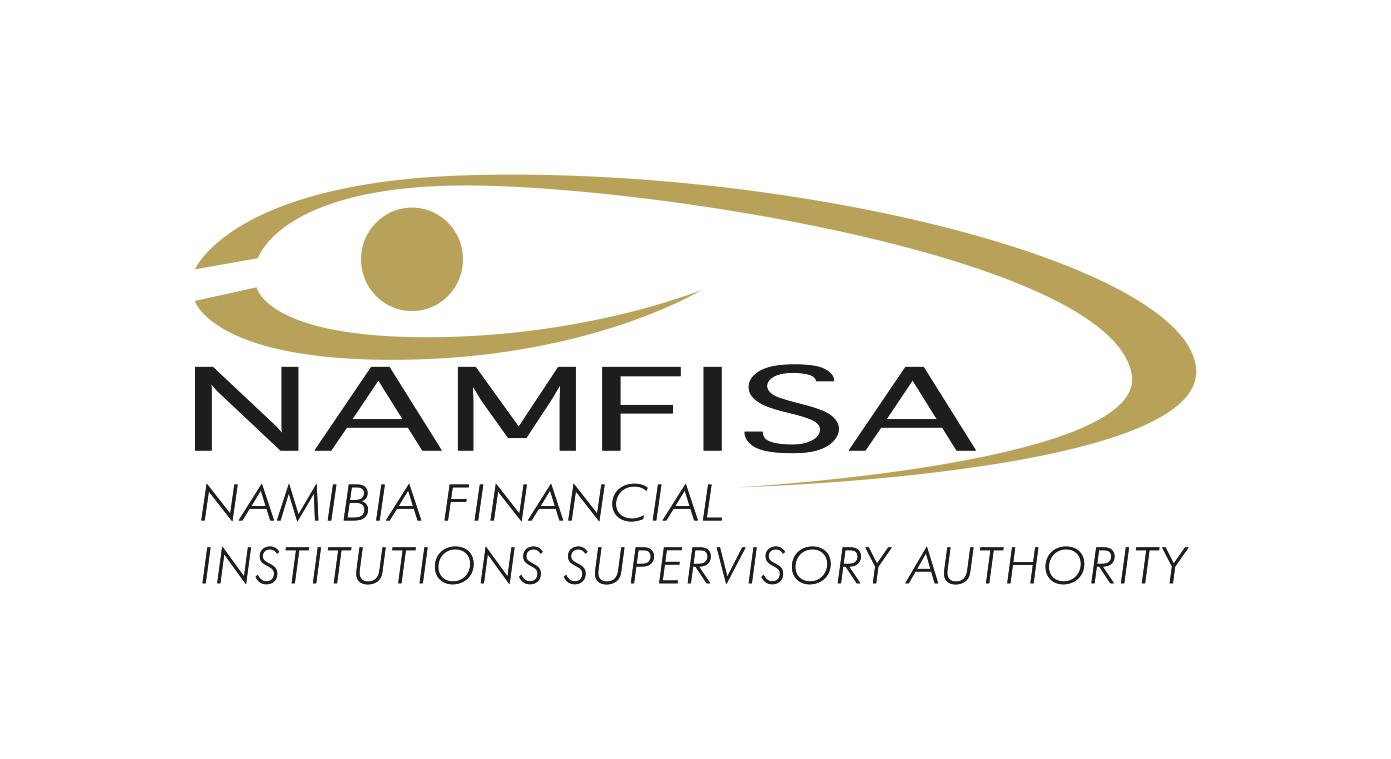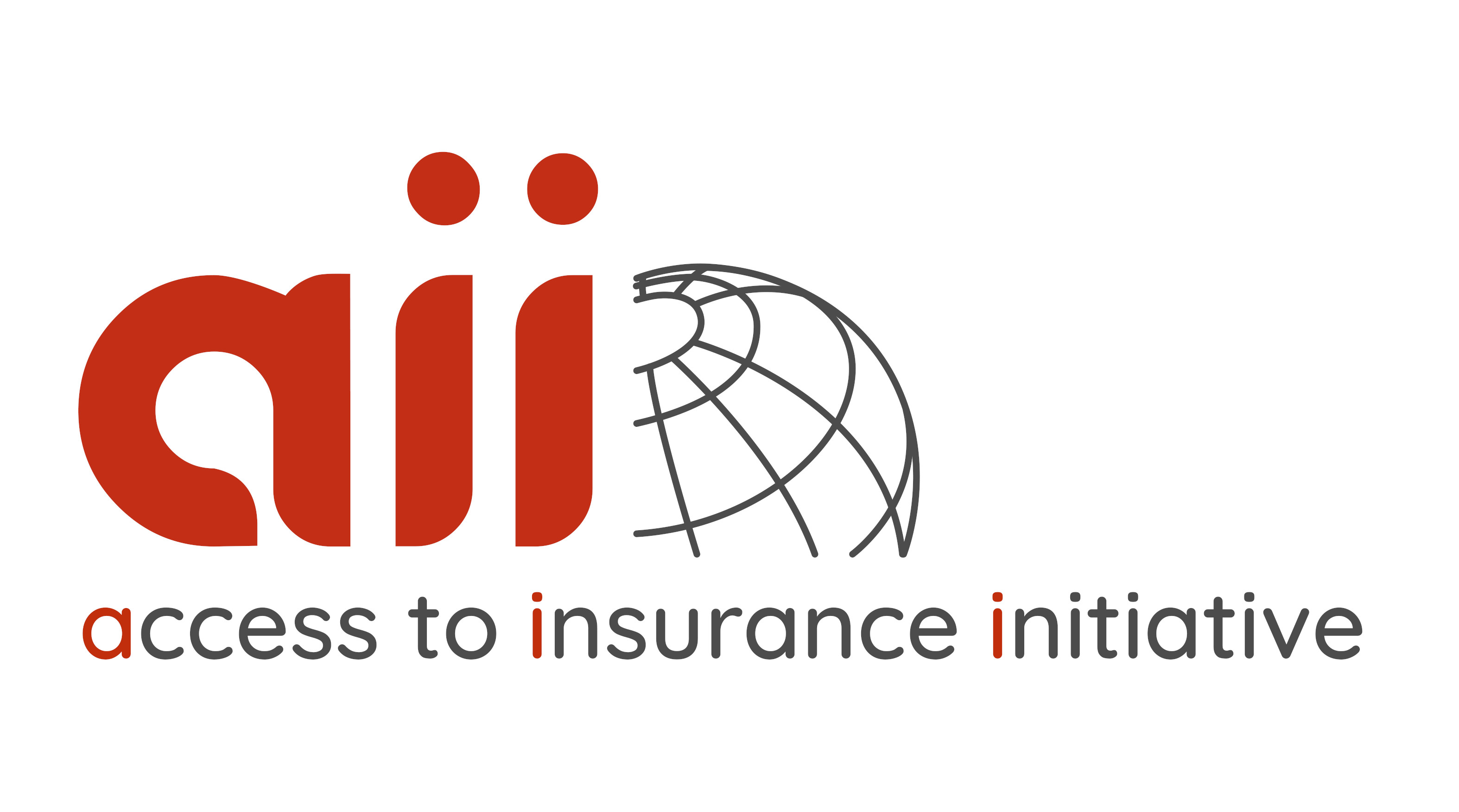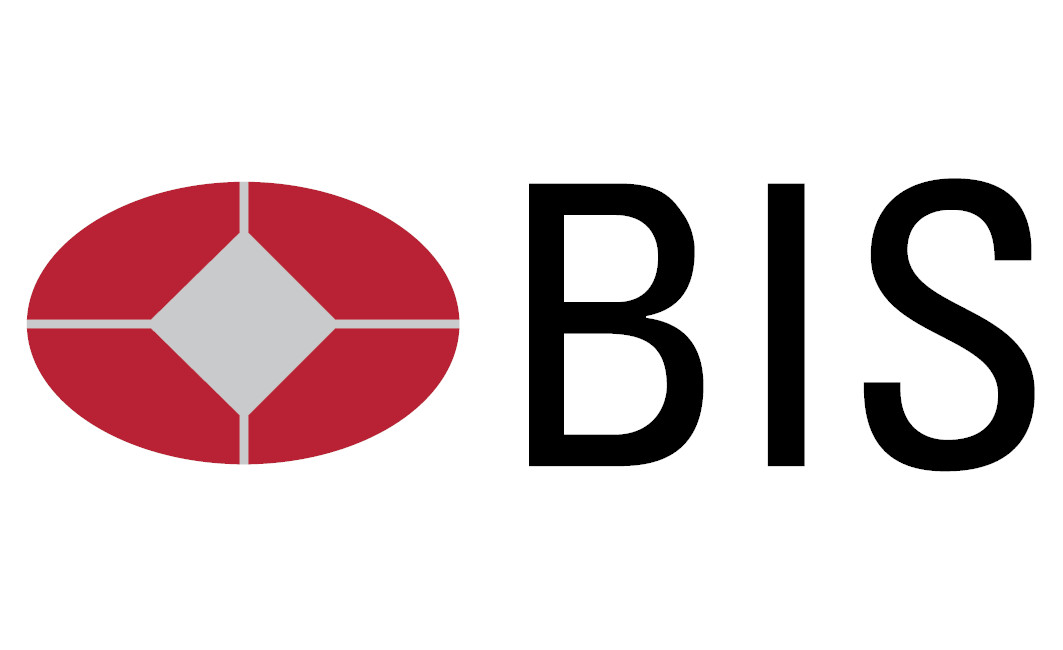About The Conference
The seminar stands as a crucial forum for supervisors, industry experts and policymakers to exchange insights, share innovative approaches and collaboratively devise solutions. Together, our objective is to address key gaps in climate resilience, financial inclusion, technology integration, skills advancement and ethical business practices.
Through presentations, panel discussions, interactive roundtable discussions, case studies and shared success stories, participants will play a vital role in pinpointing gaps, formulating actionable initiatives and contributing to the creation of strategies and practical recommendations, as well as prioritise implementation for the Sub-Saharan Africa (SSA) Region.
The conference will take place between 27 - 31 May at the Hilton Hotel in Windhoek, Namibia. Please note that the first 3 days (27 - 29 May) will be a close door session for Supervisors only and the last 2 days (30 - 31 May) is open to industry. The banquet dinner with supervisors, industry participants and policy makers will take place on Wednesday, 29 May.
The conference is hosted by the Namibian Financial Institutions Supervisory Authority (NAMFISA) and co-organised by:
- The International Association of Insurance Supervisors (IAIS)
- The Financial Stability Institute (FSI)
- The Access to Insurance Initiative (A2ii)
Please access below the papers are applicable to this Seminar:
- A Call to Action: The Role of Insurance Supervisors in Addressing Natural Catastrophe Protection Gaps - IAIS
- Application Paper: Regulation and Supervision Supporting Inclusive Insurance Markets - IAIS
- Application Paper: the Supervision of Climate-Related Risks in the Insurance Sector - IAIS & The Sustainable Insurance Forum (SIF)
- Issues Paper: Climate Change Risks to the Insurance Sector - IAIS & The Sustainable Insurance Forum (SIF)
- Issues Paper: Conduct of Business Risk and its Management - IAIS
- Emerging Sound Practices on Supervisory Capacity Development - FSI
- SupTech in Insurance Supervision - IAIS, FSI & A2ii
The Seminar will also make reference to the following Insurance Core Principles (ICPs) from the globally accepted framework for insurance supervision:
- ICP 7: Corporate Governance
- ICP 8: Risk Management and Internal Controls
- ICP 9: Supervisory Review and Reporting
- ICP 15: Investments
- ICP 16: Enterprise Risk Management (ERM) for Solvency Purposes
- ICP 19: Conduct of Business
- ICP 20: Public Disclosure
- ICP 21: Countering Fraud in Insurance
- ICP 22: Anti-Money Laundering and Combating the Financing of Terrorism
The following translation services will be provided:
- English
- French
- Portuguese
Where
Hilton Hotel | Windhoek, Namibia
When
Monday to Friday
27 - 31 May 2024
HOST & CO-ORGANISERS

|

|

|

|
Windhoek, Namibia |
Basel, Switzerland |
Basel, Switzerland |
Eschborn, Germany |
|
The Namibia Financial Institutions Supervisory Authority (NAMFISA) is the regulatory authority responsible for overseeing and supervising financial institutions in Namibia. Established in 2001, NAMFISA's primary objective is to ensure the stability and soundness of the financial sector while protecting the interests of consumers. It regulates a wide range of financial entities, including insurance companies, pension funds, collective investment schemes, and micro-lenders. NAMFISA plays a crucial role in promoting transparency, integrity, and compliance with regulatory standards within Namibia's financial industry. |
The International Association of Insurance Supervisors (IAIS) is a voluntary membership organization of insurance supervisors from more than 200 jurisdictions, constituting 97% of the world's insurance premiums. Founded in 1994, its primary objective is to promote effective and globally consistent supervision of the insurance sector to enhance financial stability and consumer protection. The IAIS develops and implements principles, standards, and guidance for insurance regulation and supervision, facilitating cooperation among insurance regulators worldwide. Through its work, the IAIS aims to address emerging risks, promote sound business practices, and foster a level playing field in the global insurance market. |
The Financial Stability Institute (FSI) is a global organization established by the Bank for International Settlements (BIS) and the Basel Committee on Banking Supervision in 1999. It serves as a hub for central banks and regulatory authorities to enhance financial stability through research, policy development, and training programs. The FSI facilitates knowledge-sharing and collaboration among financial regulators worldwide, aiming to strengthen the resilience of the global financial system. |
The Access to Insurance Initiative (A2ii) is a global partnership launched in 2009 to promote inclusive insurance markets for the benefit of low-income populations. It operates under the auspices of the International Association of Insurance Supervisors (IAIS) and works closely with insurance supervisors, policymakers, and other stakeholders worldwide. The A2ii supports capacity-building, knowledge-sharing and policy dialogue to enhance regulatory frameworks and promote the development of inclusive insurance markets. By facilitating cooperation and exchange of best practices, A2ii aims to increase access to insurance products and services for underserved and vulnerable communities. |
| Visit Namibia Financial Institutions Supervisory Authority (NAMFISA) | Visit International Association of Insurance Supervisors (IAIS) | Visit Bank for International Settlements (BIS) | Visit Access to Insurance Initiative (A2ii) |
IAIS SSA Members
| JURISDICTION | FLAG | MEMBERS |
|---|---|---|
| Africa | 🌍 | Conférence Interafricaine des Marchés d'Assurances (CIMA) |
| Angola | 🇦🇴 | Agência Angolana de Regulação e Supervisão de Seguros (ARSEG) |
| Botswana | 🇧🇼 | Non-Bank Financial Institutions Regulatory Authority (NBFIRA) |
| Burundi | 🇧🇮 | Agence de Régulation et de Contrôle des Assurances (ARCA) |
| Cape Verde | 🇨🇻 | Banco de Cabo Verde |
| Democratic Republic of Congo | 🇨🇩 | Insurance Regulatory and Supervisory Authority (ARCA) |
| Ghana | 🇬🇭 | National Insurance Commission Ghana |
| Guinea | 🇬🇳 | Direction des Assurances, Banque Centrale de la Rep. De Guinee |
| Kenya | 🇰🇪 | Insurance Regulatory Authority |
| Kingdom of Eswatini | 🇸🇿 | Financial Services Regulatory Authority (FSRA) |
| Kingdom of Lesotho | 🇱🇸 | Central Bank of Lesotho |
| Malawi | 🇲🇼 | Reserve Bank of Malawi |
| Mauritius | 🇲🇺 | Financial Services Commission (FSC) |
| Mozambique | 🇲🇿 | Instituto de Supervisão de Seguros de Moçambique |
| Namibia | 🇳🇦 | Namibia Financial Institutions Supervisory Authority (NAMFISA) |
| Nigeria | 🇳🇬 | National Insurance Commission (NAICOM) |
| Rwanda | 🇷🇼 | National Bank of Rwanda |
| Seychelles | 🇸🇨 | Financial Services Authority (FSA) |
| South Africa | 🇿🇦 | Financial Sector Conduct Authority (FSCA), Prudential Authority |
| Tanzania | 🇹🇿 | Tanzania Insurance Regulatory Authority (TIRA) |
| Togo | 🇹🇬 | Direction Nationale Des Assurances (DNA) |
| Uganda | 🇺🇬 | Insurance Regulatory Authority of Uganda |
| Zambia | 🇿🇲 | Pensions and Insurance Authority (PIA) |
| Zimbabwe | 🇿🇼 | Insurance and Pensions Commission (IPEC) |
Thematic Tracks
-
Climate Resilience and Sustainable Insurance Solutions
- Addressing protection gaps related to climate change
- Innovative insurance products/solutions for climate risk
- Regulatory approaches to address climate related protection gaps
-
Financial Inclusion
- Regulators’ role in addressing protection gaps for rural and informal populations
- Fintech solutions for financial inclusion
- Financial inclusion policy frameworks gaps
-
Skills Development and Talent Excellence
- Professional development and education initiatives
- Bridging technical skills gaps (Actuarial, ICT, Accounting, etc.)
- Collaborations between academia, industry and policymakers
-
IFRS17 Implementation
- Regulatory implications of IFRS17
- Reporting requirements and capital assessments
- Governance and controls
-
Industry Investment Strategies for Economic Development
- Creating the conditions for venture capital and private equity investments
- Public and private sector collaboration for economic growth
- Case studies on successful industry start-up investment policies
-
Building Industry Capacity for Resilient Growth
- Strategies for enhancing industry resilience
- Cross-border reinsurance and risk-transfer options
- SupTech skill development in regulatory authorities and industry
-
Market Conduct, Ethics and Consumer Protection
- AML/CFT/CPF considerations for the insurance sector
- Ensuring fair market conduct and ethical business practices (TCF & ESG)
- Regulatory frameworks for consumer protection
-
Technology and Innovation in Sub-Saharan Africa
- Addressing technology gaps in the insurance sector
- InsurTech, RegTech, SupTech and digital transformation
- Cybersecurity, Data Privacy and Security in the digital age
-
Closing Session: African Insurance Regulatory Outlook, Strategies and Key Initiatives
- IAIS Sub-Sahara Africa Regional Plan
- Strategic, Policy and Regulatory priorities of Eastern, Southern and Western Africa Authorities
- Conference outcomes and identify implementation support requirements
Event Program
Here is our event schedule
Day 1 - 3 are Closed Sessions: Supervisors only
Day 4 - 5 are Open Sessions: Supervisors & Industry
Dinner is part of the Open Session
IAIS Sub-Sahara Africa Regional Seminar 2024,
27 - 31 May 2024, Hilton Hotel - Windhoek, Namibia
Registration Opens
Participants can register and collect their materials. Program will be accessible with a QR code throughout the Seminar and participants are encouraged to limit usage of paper by not printing the program

Welcome and Introductory Remarks
Mr. Kenneth S. Matomola - CEO - NAMFISA

Overview of the Conference
Mr. Erich Gariseb - General Manager Insurance and Medical Aid Funds - NAMFISA

Recap of 2023 Nairobi Seminar
Ms. Mary Nkoimu - Senior Manager: Prudential Supervision - IRA (Kenya)
Coffee Break
Time for a short break and refreshments.

IAIS Roadmap and Strategic Plan (IAIS Secretariat)
Mr. Conor Donaldson - Head of Implementations & Assessment - IAIS

Presentation on Inclusive Insurance
Ms. Monica Odhiambo - Advisor - A2ii
Group Photo Session
Time for a group photo session with all participants.
Lunch
A break for lunch and networking.

Roundtable on Inclusive Insurance: Effective Regulatory Measures to Cultivate a Supportive Environment for Inclusive Insurance
Ms. Dunja Latinovic - Advisor, A2ii.
Coffee Break
Time for a short break and refreshments.
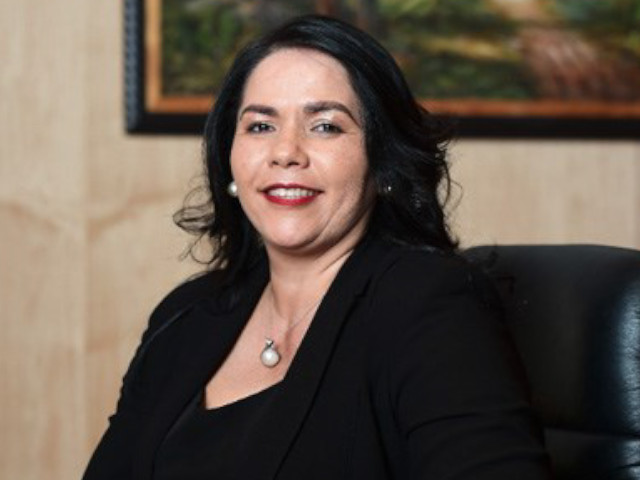
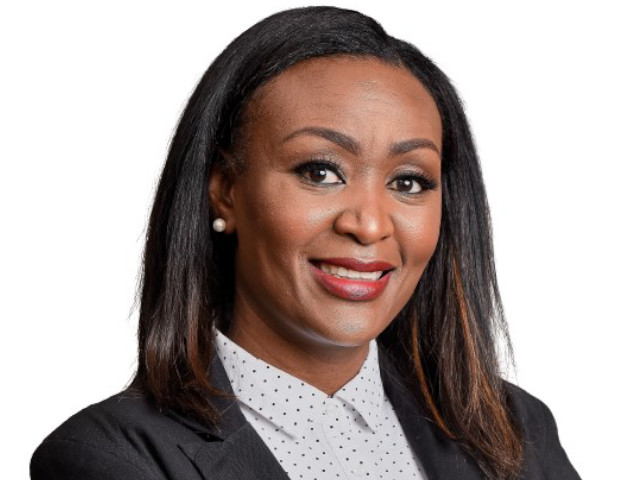
Presentation and Session on AML/CFT/CPF: AML/CFT/CPF: Outlook, Supervisory Frameworks, Enforcement Actions and Regulatory Priorities for Insurance Sector
Ms. Leonie Dunn - Deputy Governor - Bank of Namibia
Ms. Hilka Alberto - General Manager - Market Conduct (NAMFISA).
Welcome Cocktail
Hilton Hotel
Seminar Opens - Coffee & Networking
Networking opportunity over coffee as the seminar opens.

Presentation on Climate Change: Addressing Climate-Related Risks in Insurance Product Pricing and Underwriting,
Mr. Jeffery Yong - Principal Advisor, Financial Stability Institute (FSI)

Presentation on Climate Change: The Role of Insurance Supervisors in Addressing NatCat Protection Gaps
Mr. Conor Donaldson - Head of Implementation & Assessment: IAIS
Coffee Break
Time for a short break and refreshments.

Plenary Session on Climate Change: Supervision of Climate-Related Risks in the Insurance Sector - the Learning Journey
Mr. Dunja Latinovic - Advisor: A2ii,
Lunch
A break for lunch and networking.



Capacity Building
Mr. Conor Donaldson - Head of Implementation & Assessment: IAIS
Mr. Jeffery Yong, - Principal Advisor: FSI
Ms. Dunja Latinovic, - Advisor: A2iiS
Coffee Break
Time for a short break and refreshments.

Presentation on Capacity Building: Building Actuarial Capacity (Kenya Case Study)
Ms. Mary Nkoimu - Senior Manager: Prudential Supervision - IRA (Kenya)

Capacity Building for Supervisors : Leveraging Actuarial Skills
Ms. Monica Odhiambo - Advisor: A2ii.

Tour de Table on Capacity Building : Regulatory Approaches to Building Supervision Capacity in the SSA Insurance Sector
Mr. Erich Gariseb - General Manager: Insurance and Medical Aid Funds (NAMFISA)
Closing
The seminar concludes for the day.
Seminar Opens - Coffee & Networking
Networking opportunity over coffee as the seminar opens.

Presentation on SupTech : Supervisory Technology for the Insurance Sector
Mr. Jeffery Yong - Principal Advisor, Financial Stability Institute (FSI).

Roundtable on SupTech : Regulatory Challenges & Considerations Associated with the Adoption and Implementation of SupTech Solutions in the Insurance Sector
Mr. Floris Fleermuys - General Manager: Research, Policy and Statistics (NAMFISA)
Coffee Break
Time for a short break and refreshments.

Introduction to FeMa-Meter
Ms. Dunja Latinovic - Advisor - A2ii

Insurance Core Principles Self-Assessment Tool (ICP SAT)
Ms. Monica Odhiambo - Advisor - A2ii

Approval of SSA Regional Plan
Mr. Godfrey Kiptum - Commissioner & CEO: Insurance Regulatory Authority (IRA) Kenya, Regional Coordinator: Sub-Saharan Africa (IAIS).
Lunch
A break for lunch and networking.
Free Time
Participants can use this time for personal activities or rest.
Seminar Opens - Coffee & Networking
Networking opportunity over coffee as the seminar opens.

Welcoming & Introduction of Keynote Speaker
Johannes Smit - Deputy CEO: Market Conduct & Operations (NAMFISA)

Keynote Address
Raimund Snyders - Partner: Leapfrog Investments, Chair: Centre for Financial Regulation and Inclusion (CENFRI).

Presentation: Regulatory & Governance Implications of IFRS17
David Kirk - Managing Director - Milliman Africa.
Coffee Break
Time for a short break and refreshments.

Panel Discussion: Emerging Risks in the SSA Insurance Sector
Mr. Erich Gariseb - General Manager Insurance and Medical Aid Funds - (NAMFISA)
Lunch
A break for lunch and networking.

Fireside Chat: Addressing the Investment Gaps
Mr. Blessing Mbukude - Head of Actuarial - (NAMFISA)
Fireside Chat: Addressing the Consumer Financial Literacy Gaps
Coffee Break
Time for a short break and refreshments.

Presentation: Improving Access to Affordable Insurance Products
Sosthenes Konutsey - Executive Director: BIMA, Founder: Farmer Welfare Africa
Panel Discussion: Closing the Supervisory Gaps to Expand Access to Affordable Insurance Products
Closing
The seminar concludes.
Seminar Opens - Coffee & Networking

Presentation: Climate Change
Ms. Pamela Hellig - FASSA FFA CERA
Head: Insight Life Solutions
Member: Climate Change Committee - Actuarial Society of South Africa (ASSA)
Chair: Climate Change Impact on Mortality and Morbidiity – ASSA
Research Associate University of Johannesburg
Panel Discussion: Addressing Protection Gaps from Climate Change
Coffee Break

Presentation (Virtual): Global Sustainable Insurance Initiatives
Mr. Butch Bacani
- Head of Insurance, UN Environment Programme & Programme Leader, UN Principles for Sustainable Insurance

Panel Discussion: Addressing Actuarial and Other Skills Gaps
Mr. Michael Tichareva - Council & Education Board Member: Actuarial Society of South Africa (ASSA)
Lunch
Panel Discussion: Evolving Supervisory & Industry Practices to Address Technology Gaps

Panel Discussion: Embedding Ethical Practices (ie. ESG & TCF) in the Insurance Sector
Mr. Erich Gariseb - General Manager Insurance and Medical Aid Funds (NAMFISA)
Coffee Break

Panel Discussion: African Insurance Regulatory Outlook
Ms Patty Karuaihe-Martin - Incoming President: African Insurance Organisation (AIO)

Closing Remarks
Kenneth S. Matomola - CEO & Registrar: NAMFISA
Closing
SPEAKERS & PANELISTS

Kenneth S. Matomola
Registrar & CEO: Namibia Financial Institutions Supervisory Authority (NAMFISA)
Executive Committee: International Association of Insurance Supervisors (IAIS)
Chair: SADC Committee of Insurance, Securities & Non-Banking Financial Authorities (CISNA)

Conor Donaldson
Head of Implementation & Assessment: International Association of Insurance Supervisors (IAIS)

Godfrey Kiptum
Commissioner & CEO: Kenyan Insurance Regulatory Authority (IRA)
SSA Regional Coordinator: International Association of Insurance Supervisors (IAIS)
Exec. Committee: Organisation of African Insurance Supervisory Authorities (OAISA)

Jeffery Yong
FIA CERA
Principal Advisor: Financial Stability Institute (FSI), Bank for International Settlements (BIS)
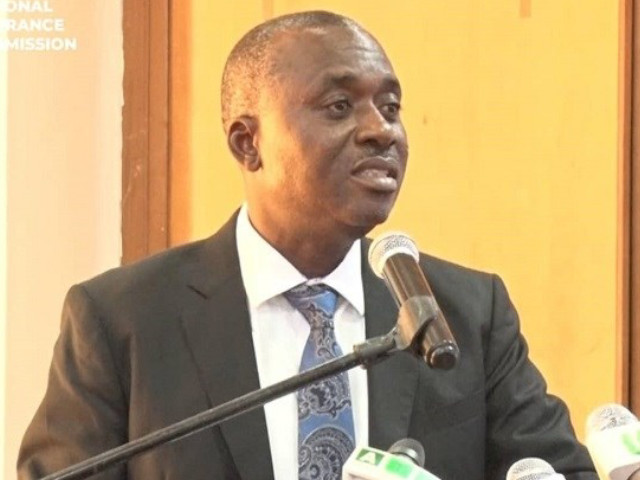
Michael Kofi Andoh
Commissioner: National Insurance Commission of Ghana (NIC)
Exec. Committee: Organisation of African Insurance Supervisory Authorities (OAISA)

Leonie Dunn
Deputy Governor: Bank of Namibia

Pamela Hellig
FASSA FFA CERA
Head: Insight Life Solutions
Member: Climate Change Committee - Actuarial Society of South Africa (ASSA)
Chair: Climate Change Impact on Mortality and Morbidiity – ASSA
Research Associate University of Johannesburg

Raimund Snyders
Partner: Leapfrog
Chair: Centre for Financial Regulation and Inclusion (CENFRI)
Non-Exec. Director: AIICO PLC (Nigeria), Softlogic Life (Sri Lanka)

Dr. Brian Manchishi
Deputy Registrar: Pensions & Insurance Authority of Zambia (IPA)

Dunja Latinovic
Advisor: Access to Insurance Initiative (A2ii)

Mr. David Kirk
FASSA FIA FeASK CFA CAIA
Managing Director: Milliman Africa
Member: IAALS - International Actuarial Association (IAA)

Mr. Butch Bacani
Head of Insurance, UN Environment Programme & Programme Leader, UN Principles for Sustainable Insurance

Monica Odhiambo
Advisor: Access to Insurance Initiative (A2ii)

Mr. Johaness Smit
Deputy CEO: Market Conduct & Operations (NAMFISA)

Mr. Josef K. Ihemba
Deputy Director: Namibian Financial Literacy Initiative (FLI)

Erich L. Gariseb
General Manager: Insurance & Medical Aid Funds (NAMFISA)
Exec. Committee: Organisation of African Insurance Supervisory Authorities (OAISA)
Member: Risk-Based Solvency Forum (IAIS)

Patty Karuaihe-Martin
Managing Director: NamibRe
Incoming President: Africa Insurance Organisation (AIO)
Co-Chair: United Nations Environment Programme Finance Initiative (UNEP FI)

Michael Tichareva
FASSA FIA
Council Member: Actuarial Society of South Africa (ASSA)
Education Board: Africa Education Strategy - Actuarial Society of South Africa (ASSA)
Chair: Banking Virtual Forum - International Actuarial Association (IAA)

Mary Nkoimu
Senior Manager: Prudential Supervision - Insurance Regulatory Authority (IRA) - Kenya
Member: Risk-Based Solvency Forum (IAIS)

Sory Diomande
CEO: Santam Re and International
Chair: South African Insurance Association (SAIA) Reinsurance Board Committee


Sonia Lukama
Strategic Partnerships: Autorité de Régulation et de Contrôle des Assurances (ARCA)
Governance Council: CISNA
Exec. Committee: Organisation of African Insurance Supervisory Authorities (OAISA)

Takalani Sikhavhakhavha
FASSA FeASK
Signing Associate Director: Actuarial & Insurance Solutions - Deloitte South Africa
Member: International Committee - Actuarial Society of South Africa (ASSA)

Hilka Alberto
General Manager: Market Conduct (NAMFISA)


Filomena Manjata
Administradora da Agencia: Angolana de Regulação e Supervisão de Seguros (ARSEG)

Floris Fleermuys
General Manager: Research, Policy & Statistics (NAMFISA)
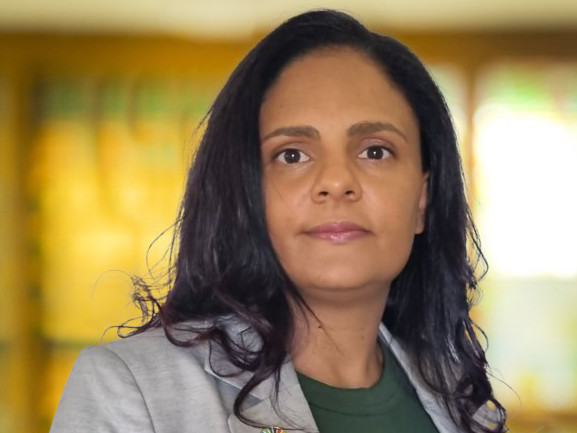
Mercia Geises
Investment Director: Climate Fund Managers B.V.


Elena Acebes Teixeira
Country Manager:Impact Tank Namibia

Sergio de Sousa
Chief Data and Analytics Officer: FNB Namibia

Grace Mohamed
Executive: Corporate Affairs Hollard Namibia

Kate Britz
CA (NAM) Actuarial (NAMFISA)
Head: Risk & Compliance - PPS Namibia
Member: Training & Development Committee – Institute of Chartered Accountants of Namibia (ICAN)
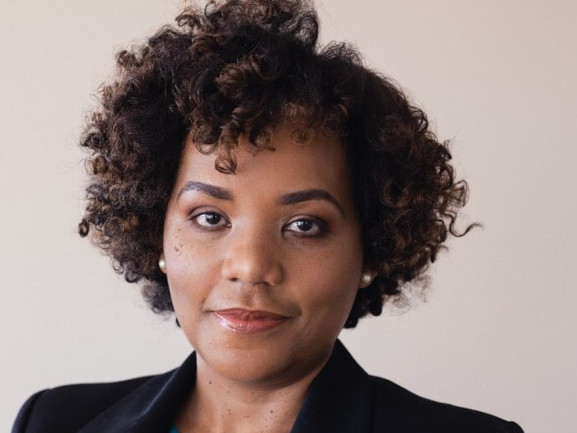
Sybil Somaes
Country Head: Namibia Apex Group Ltd

Charlotte Kapose
Manager: Conduct & Compliance NAMFISA

Garth Peterson
Head: Sales, Distribution & Marketing Liberty Life Namibia
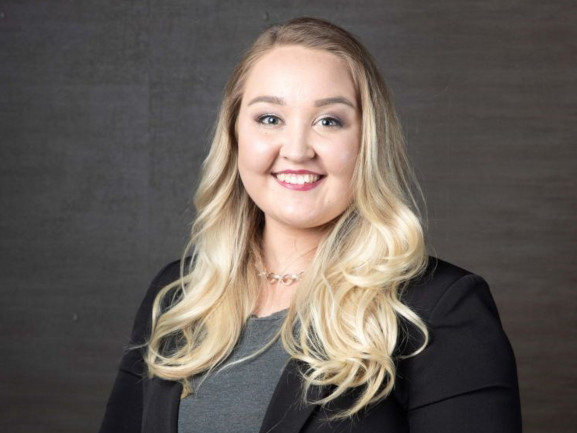
Anneke Els
FinTech Specialist: Namibia Financial Institutions Supervisory Authority (NAMFISA)


Elvin Kamana
Head: Strategy & Projects (NAMFISA)
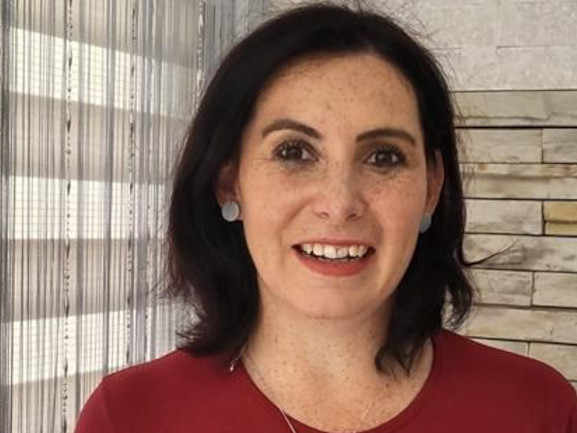
Henriette Hugo
Senior Manager: Continuous Improvement & PMO Momentum Metropolitan Namibia
Sessions
-
Presentation on Inclusive Insurance: Addressing the Underserved and Unserved Populations
The session will consist of two presentations:
- The first presentation will be an introduction to the A2ii and its mission, highlighting the core principles of inclusive insurance and the regulatory strategies developed over the last decade, which have significantly contributed to the promotion of financial inclusion.
- Then, Zimbabwe, a participant in the Inclusive Insurance Innovation Lab (iii-Lab), an A2ii initiative, will share insights into their journey within the lab and the outcomes they achieved through the process.
-
Presentation on Inclusive Insurance: Effective Regulatory Measures to Cultivate a Supportive Environment for Inclusive Insurance
The roundtable will facilitate an exchange of experiences (successes, set-backs, opportunities, etc.) regarding the impact of diverse regulatory measures on the development of inclusive insurance markets across participating countries. Commencing with a brief “scene-setting” session, the roundtable will establish a foundation for the sharing and exchange of insights and ideas.
Guiding questions for discussion include:- Why is inclusive insurance pertinent in your jurisdiction?
This question aims to contextualize the motivations driving engagement in inclusive insurance and the promotion of market development within represented countries. - What regulatory measures and strategies have supervisors employed to foster market supply and demand?
2009, A2ii has meticulously tracked and mapped existing inclusive insurance regulations and supportive measures globally. To kick off the discussion, A2ii will provide an overview of observed measures and offer insights into the A2ii Inclusive Insurance Regulations Map.
- Why is inclusive insurance pertinent in your jurisdiction?
-
Presentation and Panel Discussion on AML/CFP/CPF: AML/CFT/CPF: Outlook, Supervisory Frameworks, Enforcement Actions and Regulatory Priorities for Insurance Sector
- This session on AML/CFT/CPF offers an examination of considerations within the insurance sector, providing participants with actionable insights to tackle regulatory challenges and ensure compliance within their jurisdictions. Delving into the evolving landscape of AML/CFT/CPF regulations, panelists will explore emerging trends, adaptive strategies and the role of technology in risk management amidst recent grey listings and the convergence of financial crime with insurance operations.
-
Additionally, the panel will assess supervisory frameworks governing AML/CFT/CPF compliance, emphasizing regulatory harmonization, proportionality and technological integration for enhanced risk assessment. Collaboration between regulators and industry stakeholders will be underscored as essential for bolstering oversight and advancing compliance efforts.
Moreover, the discussion will scrutinize enforcement actions and regulatory priorities, highlighting the significance of robust mechanisms in safeguarding market integrity and policyholder interests while addressing emerging risks and encouraging cross-border cooperation to combat illicit activities effectively. Throughout the session, participants will engage in dialogue, sharing best practices and lessons learned to fortify the resilience and sustainability of the insurance industry against financial crime threats.
-
Presentation on Climate Change: Addressing Climate-Related Risks in Insurance Product Pricing and Underwriting
In today's volatile climate landscape, the insurance industry stands at the forefront of managing the financial repercussions of climate change. Robust insurance pricing and underwriting are pivotal for navigating the escalating risks associated with climate change. Insurers play a crucial role in assessing and mitigating these risks, safeguarding both their financial stability and policyholders' interests. This presentation discusses the critical nexus between climate-related risks, insurance product pricing and underwriting.
Key points include:- Integration of Climate Considerations:
The presentation explores how insurers and insurance regulators are integrating climate-related factors into their pricing and underwriting frameworks. From evaluating exposure to extreme weather events to projecting long-term climate trends, insurers are redefining their risk assessment paradigms. - Challenges on the Horizon:
However, this transition is not without its challenges. The presentation will shed light on the complexities and obstacles encountered in effectively incorporating climate risks into insurance practices. From data limitations to modeling uncertainties, the industry grapples with multifaceted hurdles. - Policy Implications:
The integration of climate considerations into insurance practices carries profound policy implications. The presentation will analyze how these changes impact the affordability and accessibility of insurance coverage for climate-related risks.
As climate change continues to reshape our world, the insurance industry stands as a bulwark against its financial fallout. This presentation elucidates the evolving landscape of insurance pricing and underwriting in the face of climate risks, underscoring the imperative for proactive adaptation and collaborative policymaking.
- Integration of Climate Considerations:
-
Presentation on Climate Change: The Role of Insurance Supervisors in Addressing NatCat Protection Gaps
This presentation builds upon the framework outlined in the IAIS Report titled "A Call to Action: The Role of Insurance Supervisors in Addressing Natural Catastrophe Protection Gaps." It underscores the significance of Natural Catastrophe (NatCat) protection gaps for insurance supervisors and emphasizes their pivotal role in enhancing societal resilience through effective risk management.
Key points include :- Understanding Protection Gaps:
The report explains why addressing NatCat protection gaps are of paramount importance for insurance supervisors. By delineating the repercussions of underinsurance and uninsured losses, it underscores the imperative for proactive intervention to bridge these gaps. -
Supervisory Contributions:
The presentation outlines five key areas where insurance supervisors can play a catalytic role in addressing NatCat protection gaps:- Contributing to the assessment of protection gaps.
- Enhancing consumer financial literacy and risk awareness.
- Incentivizing risk prevention measures.
- Fostering a conducive regulatory and supervisory environment to facilitate insurance availability and coverage uptake.
- Advising government and industry stakeholders on strategies for enhancing financial inclusion and societal resilience
- Regional Insights and Initiatives:
The session also offers a platform for stakeholders to share insights and experiences pertaining to current challenges and ongoing initiatives aimed at mitigating NatCat protection gaps within their respective regions. Through dialogue and knowledge exchange, the session seeks to identify best practices and collaborative avenues for addressing these gaps effectively.
NatCat protection gaps pose formidable challenges to societal resilience and economic stability. As guardians of the insurance industry, insurance supervisors wield considerable influence in mitigating these risks. The presentation will underscore the multifaceted role of insurance supervisors in addressing NatCat protection gaps and advocates for concerted efforts towards building a more resilient and inclusive insurance ecosystem.
- Understanding Protection Gaps:
-
Plenery Session on Climate Change: Supervision of Climate-Related Risks in the Insurance Sector - the Learning Journey
Regulatory bodies and supervisors wield significant influence in setting standards, offering guidance, and implementing measures to effectively manage climate-related risks within the financial system, regulated entities, and consumer protection. In support of these efforts, the International Association of Insurance Supervisors (IAIS) and the Sustainable Insurance Forum (SIF) have jointly published the "Supervision of Climate-related Risks in the Insurance Sector" paper, with the A2ii hosting a supporting training module.
Our discussion will center on the key insights from the paper, focusing particularly on:
- Integration of climate risk considerations into regulatory frameworks.
- Exploration of ways supervisors can collaborate with the industry to highlight the impact of climate change on business profiles and portfolios.
We will make reference to following Insurance Core Principles (ICPs):
- ICP 9: Supervisory review and reporting.
- ICPs 7 and 8: Corporate governance, risk management, and internal controls.
- ICP 16: Enterprise Risk Management (ERM) for solvency purposes, including scenario analysis and stress testing.
- ICP 15: Investments.
- ICP 20: Disclosures.
The aim is to facilitate a robust exchange on:
- Motivations for Supervisory Actions:
Understanding the drivers behind supervisory initiatives in different countries and the observed impacts of climate-related risks. - Balancing Supervision and Sustainability:
Examining how supervisors are integrating climate considerations into their practices while promoting sustainability within the industry. This includes promoting climate-smart agricultural insurance policies, incorporating climate considerations into regulatory frameworks, engaging stakeholders, collaborating with industry players and aligning with countries’ strategic roadmaps. - Capacity Building and the Learning Journey:
Identifying key supervisory capacity-building needs and lessons learned from countries’ experiences. This includes challenges, best practices, insights from collaborative and/or multistakeholder initiatives and remaining knowledge gaps. Additionally, we seek to understand the natural starting point for supervisors who are in the early stages of addressing climate change impacts and learning from those who are further along the curve.
This panel aims to facilitate a comprehensive understanding of how various jurisdictions are navigating the multifaceted challenges presented by climate change. Furthermore, we aim to share actionable strategies that can be tailored and implemented across diverse regions.
-
Capacity Building Session IAIS, FSI & A2ii
During the session, the IAIS will outline its strategy to support supervisors’ capacity-building efforts, providing a comprehensive overview of initiatives tailored to equip supervisory authorities with the skills and knowledge needed to navigate evolving regulatory challenges. Concurrently, the Implementation Partners will showcase the breadth of resources available to supervisors, spanning educational materials, training programs and technical assistance initiatives, aimed at facilitating a nuanced understanding of supervisory issues.
There will also be a focus on the A2ii’s capacity building program: Capacity Building for Supervisors - Leveraging Actuarial Skills. Through interactive dialogue, supervisors will have the opportunity to articulate their capacity-building needs and priorities, ensuring alignment between resources and the evolving challenges faced by supervisory authorities in the sub-Sahara Africa (SSA) region.
By offering insights into strategic approaches and showcasing available resources, the session aims to empower supervisory authorities to effectively address emerging challenges, including those related to climate risk and technological innovation. The interactive exchange of feedback between supervisors and Implementation Partners ensures that capacity-building efforts remain responsive to the evolving needs of the SSA supervisory community, developing a more resilient and proficient regulatory landscape.
-
Presentation on Capacity Building: Building Actuarial Capacity (Kenya Case Study)
The presentation by the Insurance Regulatory Authority (IRA) of Kenya will highlight their approach to addressing the critical shortage of qualified actuaries within the country. Recognizing the importance of having a pool of qualified professionals (such as actuaries, risk managers, accountants, etc.) as a success factor for implementing Risk-Based Supervision (RBS), the IRA launched the Actuarial Capacity Development Program in partnership with the BAYES School in London. This program, underscored by a commitment to diversity and inclusion, aimed to fast-track aspiring actuaries through a master’s degree qualification, thereby bridging the capacity gap. By sharing their strategies, policies, and outcomes, IRA will provide valuable insights for other regulators grappling with similar challenges, emphasizing the significance of proactive capacity-building initiatives to meet the evolving demands of insurance regulation in the SSA region.
Through the case study, IRA will demonstrate the transformative impact of their Actuarial Capacity Development Program, showcasing a tangible increase in actuarial capacity within Kenya. By leveraging partnerships with educational institutions and implementing targeted policies, IRA effectively addressed the demand for actuaries from local insurers, positioning Kenya to adapt to regulatory developments like the implementation of IFRS 17. The presentation will also underscore the importance of collaboration, diversity and proactive policy interventions in building a skilled workforce capable of navigating the complexities of modern insurance regulation.
-
Tour de Table on Supervisory Capacity: Regulatory Approaches to Building Supervision Capacity in the SSA Insurance Sector
The objective of this is session is to explore the current state of supervisory capacity in Sub-Saharan Africa (SSA) and collectively identify and explore strategies to improvement, if and where needed. Participants will also assess the challenges and gaps in capacity development, including limited resources and inadequate training programs and consider the discuss aspects of the Financial Stability Institute (FSI) Insights’ paper:
The FSI paper Emerging Sound Practices on Supervisory Capacity Development will be relevant to this session. The FSI Insights are written by members of the Financial Stability Institute (FSI) of the Bank for International Settlements (BIS), often in collaboration with staff from various supervisory agencies and central banks. Emphasis will be placed on the need for tailored capacity building programs that address the specific needs of the SSA insurance sector, as well as the importance of collaboration, technology adoption and resource mobilization to strengthen supervisory capabilities.
Moreover, discussions will focus on the potential benefits of regulatory harmonization, inclusive growth, and consumer protection, with an aim to identify priorities and strategies for future action. The session will also provide a platform for participants to share experiences, exchange best practices and identify concrete steps for enhancing supervisory capacity in the SSA insurance sector, ultimately contributing to a more sustainable, inclusive and resilient insurance industry in the region.
-
Presentation on Supervisory Technology (SupTech): Supervisory Technology for the Insurance Sector
The advent of supervisory technology (suptech) marks a transformative juncture for insurance supervision, promising enhanced efficiency, transparency and effectiveness. This presentation delves into the opportunities presented by suptech tools in bolstering prudential and conduct supervision within the insurance sector, while also acknowledging the challenges inherent in their development and implementation.
The presentation will also include:
- Illustrative Examples:
The presentation will showcase tangible examples of suptech tools deployed in prudential and conduct supervision within the insurance sector. - Navigating Challenges:
Despite their promise, the development and adoption of suptech tools are not devoid of challenges. The presentation will also touch on the hurdles encountered in harnessing suptech. Addressing these challenges necessitates a concerted effort from regulators, industry stakeholders and technology providers.
Suptech holds immense promise in revolutionizing insurance supervision, empowering regulators to navigate the complexities of an increasingly digitized landscape with precision and efficacy. By leveraging suptech tools, insurance supervisors can bolster prudential and conduct oversight, safeguarding market integrity and consumer protection. This presentation serves as a clarion call for collaboration and innovation in harnessing suptech for the betterment of the insurance sector.
- Illustrative Examples:
-
Round Table on Supervisory Technology (SupTech): Regulatory Challenges & Considerations Associated with the Adoption and implementation of SupTech Solutions in Insurance Sector.
The round table discussion on Supervisory Technology (SupTech) adoption in the SSA insurance industry will engage the various participants on six key themes. First, it will explore how SupTech is strengthening regulatory compliance and oversight by simplifying reporting procedures, identifying irregularities, and ensuring adherence to regulatory norms. The conversation will then shift towards risk management and resilience, investigating how SupTech is enhancing risk detection, utilizing real-time monitoring and leveraging predictive analytics to anticipate emerging risks, and tackle integration challenges within existing risk management frameworks of SSA supervisors.
The session will also focus on data privacy and security, highlighting the strategies used to protect sensitive data and align SupTech implementations with data protection regulations such as the GDPR, POPIA and Kenya’s Data Protection Act. Furthermore, the necessity for interoperability and standardization across regulatory jurisdictions will be examined, stressing collaborative efforts among regulators to establish common frameworks and the advantages of adopting standardized SupTech solutions at regional (CISNA, EAISA, WAISA, CIMA, etc) or continental (OAISA, etc) levels.
Additionally, discussions on capacity building and training will highlight efforts to enhance digital literacy among SSA regulatory and industry professionals. Finally, the exploration of the regulatory sandbox approach will offer insights into its potential as a testing ground for SupTech innovations, including eligibility criteria and lessons from successful global case studies, providing a comprehensive analysis of SupTech's transformative potential in the SSA insurance sector.
-
Introduction to FeMa-Meter
Focusing on gender is a crucial aspect of ensuring inclusive insurance, as women's access to insurance not only promotes financial inclusion and consumer protection but also aids market development and improves product design. Moreover, enhancing women's involvement in the industry is closely linked to the promotion of good governance and sustainable practices.
A2ii is committed to advancing the financial inclusion of women by empowering regulators and supervisors with tools to create more accessible markets and promote gender-equitable representation within the insurance sector. In pursuit of this goal, A2ii has developed the FeMa-Meter, a user-friendly supervisory tool designed to capture essential insurance metrics disaggregated by gender. This tool enables supervisors to efficiently gather data from various insurers and obtain valuable high-level insights swiftly.
-
Insurance Core Principles Self-Assessment Tool (ICP SAT)
This Self-Assessment Tool provides jurisdictions with a structured approach to assess their regulatory frameworks and practices in line with the standards set forth by the International Association of Insurance Supervisors (IAIS). During the session, participants will examine the intricacies of the Insurance Core Principles Self-Assessment Tool (ICP SAT), which serves as an instrument for jurisdictions aiming to evaluate their adherence to the IAIS’ Insurance Core Principles (ICPs). By utilizing the SAT, jurisdictions gain insights into their strengths and areas requiring improvement concerning the implementation of ICPs, thereby facilitating the enhancement of their insurance regulatory regimes.
The presentation will dissect the SAT's methodology and its significance in the context of strengthening regulatory oversight and promoting financial stability within the insurance sector. Moreover, participants will explore the practical application of the SAT, including its adaptability to different regulatory environments and how it could aid cooperation and knowledge-sharing among supervisory authorities globally.
-
Panel Discussion: Emerging Risks in the SSA Insurance Sector
The panel discussion on Emerging Risks in the Sub-Saharan Africa Insurance Sector covers a wide array of challenges and opportunities crucial for the advancement of sustainability and resilience in the SSA insurance industries. With a focus on cyber-attacks and data breaches, climate change impacts, talent acquisition and retention, evolving customer needs and geopolitical volatility, industry leaders will highlight the need for robust cybersecurity measures, innovative insurance products for climate-related risks, talent development strategies, customer-centric innovation and proactive management of political instability. Discussions will center on collaborative efforts between stakeholders, leveraging technology and data analytics as well as regulatory responses to mitigate these risks effectively.
Panelists will share insights from their experiences and organizations, emphasize the importance of addressing regulatory gaps, diversity initiatives and collaboration between industry leaders, regulators and policymakers. Key points will include the necessity for proactive risk management, integration of climate risk modeling into decision-making processes as well as the role of technology in enhancing customer experience and product offerings.
-
Fireside Chat: Addressing Investment Gaps
The fireside chat on Closing the Investment Gaps discusses the complexities of mobilizing investment resources to enhance growth and development within the African insurance industry. Despite significant growth opportunities within the insurance value chain due to low penetration rates across the continent, numerous challenges contribute to existing investment gaps. These include policy and regulatory hurdles, infrastructure deficiencies, barriers facing start-ups, political instability and socio-economic factors. The session aims to dissect these factors and explore viable strategies, policy interventions and collaborative efforts necessary to bridge these gaps effectively, thereby unlocking the region's full potential for attracting both domestic and foreign investment to the insurance sector.
Additionally, the chat will focus on identifying 2-3 key areas requiring policy attention to facilitate the growth and sustainability of the African insurance sector. These areas may include regulatory framework streamlining/harmonisation to encourage investment, public-private partnerships to address infrastructure deficiencies and targeted policies to support the growth of start-ups in the insurance space. By addressing these policy priorities and fostering collaboration between stakeholders, the chat aims to discuss ways for a more vibrant and resilient insurance industry that can effectively meet the needs of the African market while contributing to broader economic development goals.
-
Fireside Chat: Addressing the Consumer Financial Literacy Gaps
The fireside chat on Addressing Consumer Financial Literacy Gaps will cover six key areas aimed at narrowing gaps in financial literacy among consumers. Beginning with an analysis of the current landscape, speakers will explore the state of financial literacy in Sub-Saharan Africa (SSA), highlighting ongoing initiatives and challenges. Specific gaps in consumer understanding of insurance products and financial services will be focal points, including insurance terminology, coverage options, claims processes and the role of insurance in financial planning. Additionally, the presentation will stress the necessity of tailoring education initiatives to meet the diverse needs and cultural context of the SSA region, considering language barriers, accessibility issues, and leveraging technology for remote outreach.
Collaboration across stakeholders will be emphasized as crucial, with a focus on cooperation between regulators, insurance companies, industry associations, financial institutions, educational entities and community organizations. Highlighting successful partnerships and engagement strategies will inspire similar collaborations. Strategies for measuring the impact of financial literacy initiatives, such as enhanced understanding and increased uptake of insurance products, will be explored. Policy implications will also be discussed, including the role of regulations in promoting financial literacy and implementing consumer protection measures.
-
Panel Discussion Closing the Supervisory Gaps to Expand Access to Affordable Insurance Products
The panel discussion on Addressing the Supervisory Gaps to Expand Affordable Insurance Products in Sub-Saharan Africa (SSA) will examine six crucial areas concerning the accessibility and regulation of insurance products. Initially, it will analyze existing regulatory frameworks to assess their effectiveness in promoting access to affordable insurance and pinpoint any gaps hindering expansion. Subsequently, the discourse will focus on consumer protection, emphasizing the need for transparent and equitable insurance products, especially for vulnerable or marginalized groups. The panel will also explore how innovation and technology, including digital platforms and Insurtech solutions, can play a catalytic role in addressing supervisory gaps and reaching underserved markets.
Moreover, the discussion will highlight the importance of capacity building among regulatory authorities in SSA, advocating for training programs, knowledge sharing platforms, and international collaboration to strengthen supervisory capabilities. Market conduct regulation will be perused to ensure the suitability and affordability of insurance products for SSA consumers while addressing any regulatory inconsistencies. Lastly, the panel will emphasize the significance of partnerships and collaboration, demonstrating how regional and continental cooperation between regulatory authorities, industry stakeholders and relevant entities can improve regulatory effectiveness and expand access to affordable insurance products, thereby promoting financial inclusion across the SSA region.
-
Panel Discussion Addressing Protection Gaps from Climate Change
The panel discussion on Addressing Climate Protection Gaps will explore strategies to confront climate insurance gaps, highlighting their economic relevance and investigating innovative solutions driven by technology, regulation, collaboration, and consumer engagement.
Key themes include understanding current climate risks and protection gaps, especially in vulnerable regions like Sub-Saharan Africa, and exploring their economic implications across various sectors and communities. Additionally, the panel will examine insurance industry responses and adaptation strategies, regulatory and policy responses to incentivize climate-resilient investments, and technological advancements such as remote sensing and parametric insurance. Panelists will also share insights, discuss industry and regulatory responses and emphasize the importance of collaboration between stakeholders to bridge protection gaps effectively. Overall, the discussion aims to advance collaboration and provide recommendations for addressing climate protection gaps, ultimately enhancing the industry's ability to effectively mitigate risks and promote economic resilience in the face of climate change.
-
Panel Discussion Addressing Technical Skills Gaps (Actuarial, Technology, etc.)
The panel discussion on Addressing the Actuarial and Other Skills Gaps will delve into six critical areas concerning skills gaps within the insurance sector in Sub-Saharan Africa (SSA). It will also share relevant key findings and outcomes from the Supervisors’ discussion on Capacity Building and the Kenyan Actuarial Capacity Building initiatives with the aim of exploring areas of collaboration with industry and other stakeholders.
It will assess specific skills lacking in the SSA insurance workforce, comparing them globally and examining their organizational impact. Moreover, the discussion will explore factors contributing to skills gaps, including educational limitations and regulatory impacts, highlighting successful cases where these factors have been addressed. Additionally, the panel will anticipate future trends and technologies that may exacerbate skills gaps, preparing the workforce for changing requirements and reviewing existing training programs while exploring innovative approaches to enhance effectiveness.
Furthermore, the panel will discuss the roles of industry associations and professional bodies in addressing skills gaps and examine the evolving roles of professionals in response to technological advancements and customer expectations. It will also assess the role of regulators in skills development and explore ways to strengthen partnerships between academia and industry, identifying success factors for effective collaborations and initiatives to promote closer collaboration and skills development between organizations and academic institutions. Through these discussions, the panel aims to provide insights and recommendations to bridge skills gaps effectively, ensuring a skilled and adaptable insurance workforce in Sub-Saharan Africa.
-
Panel Discussion Evolving Supervisory & Industry Practices to Address Technology Gaps
The panel discussion on Evolving Supervisory & Industry Practices to Address Technology Gaps in the insurance industry will cover four key areas shaping its future: the current technological landscape, supervisory adaptation, enhancing financial inclusion through technology and regulatory compliance and consumer protection. Firstly, it will explore prevalent technological trends like artificial intelligence, blockchain, and data analytics, showcasing how insurance companies are (and will be) leveraging them to streamline processes, engage customers and innovate their offerings. Secondly, the panel will examine how regulatory bodies are adapting their frameworks to keep up with technological advancements, focusing on the benefits of SupTech, Regtech, FinTech and InsureTech in easing compliance burdens while discussing challenges and the need for capacity building.
Thirdly, the session will discuss how technology is driving financial inclusion by overcoming barriers to access and affordability, discussing the role of digital distribution channels and microinsurance solutions in extending coverage to underserved populations. Lastly, it will address regulatory challenges posed by rapid technological advancements and measures to ensure compliance with data protection regulations and consumer privacy. The emphasis will be on collaboration between regulators and industry stakeholders to establish ethical standards, ensuring consumer protection and financial stability amidst technological transformations.
-
Panel Discussion Embedding Ethical Practices (ie. ESG & TCF) in the Insurance Sector
The panel discussion on Embedding Ethical Practices in the Insurance Sector will focus on integrating Environmental, Social, and Governance (ESG) factors and Treating Customers Fairly (TCF) principles within the industry. Key topics include the relevance of ESG factors like climate resilience and social impact to insurers' operations, as well as the core principles of TCF practices. The session will discuss the tangible benefits of prioritizing ethical practices, including financial performance, investor perception and risk management, illustrating through case studies how these considerations drive innovation, market differentiation and regulatory compliance.
Additionally, the session will cover mechanisms for incorporating ESG considerations into investment decisions and enhancing risk management practices, alongside exploring how technology supports the implementation of TCF principles. The discussion will also address the regulatory landscape, considering compliance requirements across Sub-Saharan Africa and anticipating future trends. Panelists are encouraged to share their insights and experiences, discuss industry responses and regulatory gaps, and propose collaborative approaches between regulators, policymakers, and industry leaders. Overall, the panel aims to provide actionable steps for building a sustainable and resilient insurance industry in Sub-Saharan Africa, promoting collaboration to enhance industry resilience and sustainability through ethical practices.
-
Panel Discussion African Insurance Regulatory Outlook Moderator: Patty Karuaihe-Martin (Incoming President: African Insurance Organisation (AIO))
This high-level panel serves as a platform for fostering meaningful dialogue among leaders from the African Insurance Industry and Regulatory authorities across the continent. Moderated by Patty Karuaihe-Martin, the incoming President of the African Insurance Organisation (AIO), this session aims to ignite insightful discussions on the future of insurance regulation in Africa. The panel will delve into key topics shaping the regulatory landscape of the insurance industry, such as emerging trends, regulatory challenges and opportunities for collaboration.
The esteemed regulatory leaders serving on various organizations, including the International Association of Insurance Supervisors (IAIS), the SADC Committee of Insurance, Securities and Non-banking Financial Authorities (CISNA), the East Africa Insurance Supervisors’ Association (EAISA), the West Africa Insurance Supervisors’ Association (WAISA) and the Organisation of African Insurance Supervisory Authorities (OAISA), will share their insights on key developments, strategic initiatives and the outlook of their respective organizations.
The panelists will engage in robust discussions aimed at identifying best practices, encouraging cooperation and addressing regulatory challenges to promote the growth and stability of the insurance industry in Africa. Through sharing their experiences and expertise, they will explore opportunities for regulatory harmonization, capacity building and innovation within the sector. Ultimately, the panel seeks to provide actionable insights and recommendations for policymakers, industry stakeholders and regulators to navigate the evolving landscape of insurance regulation in Africa, ensuring the industry's resilience and sustainable development.
Sessions Details
-
Panel Discussion: Emerging Risks in the SSA Insurance Sector
+ Moderator : Erich L. Gariseb General Manager: Insurance & Medical Aid Funds - (NAMFISA)
+ Scene-setting: : Erich L. Gariseb General Manager: Insurance & Medical Aid Funds - (NAMFISA)
+ Panelist: Tassius ChigariroGroup CEO: Old Mutual Namibia
+ Panelist: Sory DiomandeCEO: Santam Re and International
+ Panelist: David KirkManaging Director: Milliman Africa
+ Panelist: Gustav JenkinsCEO: Liberty Life Africa
-
Fireside Chat: Addressing the Investment Gaps
+ Moderator : Blessing Mbukude - Head of Actuarial - (NAMFISA)
+ Panelist: Godfrey Kiptum - Commissioner and CEO: Kenyan Insurance Regulatory Authority (IRA)
+ Panelist: Raimund Snyders - Partner: Leapfrog Investments
+ Panelist: David Kirk - Managing Director: Milliman Africa
+ Panelist: Gustav Jenkins - CEO: Liberty Life Africa
-
Panel Discussion: Addressing Protection Gaps from Climate Change
+ Moderator : Mercia Geises - Investment Director: Climate Fund Managers B.V.
+ Scene-setting: : Pamela Hellig - Head: Insight Life Solutions, Member: Climate Change Committee - Actuarial Society of South Africa (ASSA), Chair: Climate Change Impact on Mortality & Morbidity - Actuarial Society of South Africa (ASSA)
+ Panelist: Sory Diomande - CEO: Santam Re and International
+ Panelist: Patty Karuaihe-Martin - Managing Director: NamibRe, Co-Chair: United Nations Environment Programme Finance Initiative (UNEP FI)
+ Panelist: John Uusiku - Managing Director: Namibia Special Risks Insurance Association (NASRIA)
Seminar Venue
Seminar venue location info and gallery
Hilton Hotel, Rev. Michael Scott Street, Windhoek, Namibia
Contact Details: Tel: +264 61 296 2929
Recommended Hotel Accommodation:
Her are some nearby hotels
Recommended AirBnB Accommodation:
Her are some nearby hotels
About Namibia
Key Facts about Windhoek:
+ Capital City: Largest city and the administrative, legislative, judicial and commercial capital of the Republic of Namibia
+ Population: Approx. 490,000 inhabitants
+ Traditional Names: Windhoek has two traditional names: Otjomuise and /Ae //Gams
+ Airports: Windhoek is served by two airports:
+ Hosea Kutako International Airport: (for international and regional flights) situated 40km east of the city and,
+ Eros Airport: (for domestic and smaller aircraft).
+ Currency: Namibian Dollar. South Africa Rand (ZAR) is widely accepted.
+ Time Zone: UTC+2 (SAST)
Tour/Excursion Operators:
+ Raggi Transfer & Tours has a bookings desk next to the reception at Hilton Hotel (Conference Centre)
+ Kindly contact them and make bookings with them directly at Raggi Transfer & Tours
+ We advise you to make excursion arrangements well in advance to secure bookings
+ Please be advised that excursions are not included in the registration fee
Landmarks, Place to Visit & Things to Do
+ Gibeon Meteorites
+ Genocide Memorial
+ Christuskirche
+ National Museum of Namibia
+ Okapuka Safari Lodge
+ Heroes Acre
+ Penduka Village
+ Katutura
+ Namibia Craft Centre
+ Windhoek City Tour
Restaurants
+ Stellenbosch Wine Bar and Bistro
+ The Hook
+ Seoul Food Korean Restaurant
+ Joe’s Beerhouse
+ Isabel’s Table
+ Fresh ‘n Wild at Utopia
+ Kubata Restaurant
+ Butcher Block
+ Cape Town Fish Market
+ SkyBar - Avani Rooftop
Getting Around in Windhoek - Ride Hailing:
+ LEFA: Namibia’s very own ride-hailing app
+ Payment Methods: Cash payments only
Also provides transport to and from Hosea Kutako International Airport
Shopping
+ Gustav Voights Shopping Centres
+ Windhoek Craft Centre and Café
+ Mearua Mall
+ Wernhil Park
+ Grove Mall
Seminar Directors

Marion Shumane
Financial Analyst: Conduct & Compliance - NAMFISA
President: NAMFISA Toastmasters Club

Victoria Raimond
Manager: Corporate Communications & Consumer Education
Email: vraimond@namfisa.com.na
Telephone: Tel: +264 61 290 5177
Contact Us

Erich L. Gariseb
General Manager: Insurance & Medical Aid Funds (NAMFISA)
Email: egariseb@namfisa.com.na
Telephone: +264 61 290 5222

Anesia Cloete
Project Assistant: Strategy & Projects Office (NAMFISA)
Email: acloete@namfisa.com.na
Telephone: Tel: +264 61 290 5276

Victoria Raimond
Manager: Corporate Communications & Consumer Education
Email: vraimond@namfisa.com.na
Telephone: Tel: +264 61 290 5177

